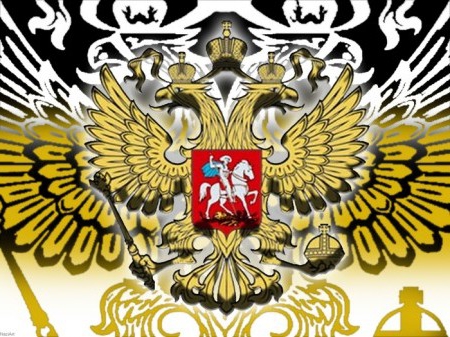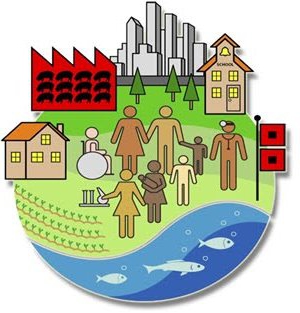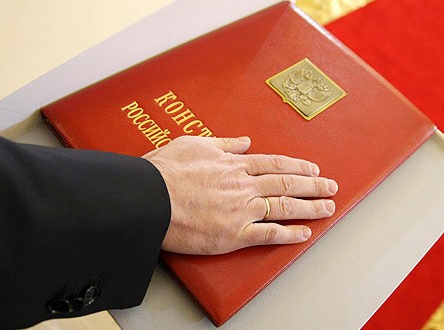The modern foundations of the constitutional system of the Russian Federation are the main principles of development of the Russian state, which are enshrined in the Constitution. The spread of this term occurred in the early 90s of the twentieth century. At this time, the first legal acts containing the concept of "the foundations of the political system" were born. Of course, the main implementation of such a term in the legal system is connected with the development and adoption of the Constitution of the Russian Federation.

Disclosure of the concept of constitutional order
In order to understand what constitutes the state basis of the Russian Federation, it is necessary to analyze in more detail the concept of the foundations of the constitutional system, in connection with which to consider several views on this definition:
- This is an orderly system of public relations, which are regulated by the basic law of Russia, and are also formed under the influence of other normative acts - federal laws, resolutions of executive bodies of the state, and so on.
- This is the basic foundation for the development of modern society in conjunction with the organization of public authority. This view shows the development of a system of basic political, social, economic, cultural and spiritual values.
In addition, the constitutional system as a basis uses not only the development of public goods, but also the form of government. The Constitution of the Russian Federation refers to the republican form of government, the state-territorial structure, and also specifies the source of power and the legal regime. The basic law shows the principles of the constitutional system, the foundations of which affect the formation and development of each sphere of public life.
The content of the Constitution as an official proclamation of the state system

There are a huge number of opinions, articles, scientific papers studying the foundations of the constitutional system of the Russian Federation. However, before looking into the textbook of one or another eminent author, it is worth paying attention to the articles of the main law of the country.
The first article fully describes the status of the Russian state as a sovereign territory. This norm includes the political foundations of the constitutional system: the republic, the political regime - democracy, the federal form of state structure.
The following articles reveal other rules regarding the organization of power. Moreover, the first chapter of the Constitution is not subject to change even in a special order, which does not apply to the 3-8th chapters. If a decision is made to amend the 1st, 2nd and 9th chapters of the main law, a decision must be made on the approval and adoption of a new draft Constitution. Moreover, the fulfillment of the assigned task is assigned to a non-existent body - the Constitutional Assembly. Therefore, changing the foundations of the constitutional system of the Russian Federation is almost impossible due to the extraordinary complexity of this procedure.
The main political principles of building a state
The establishment of the foundations of the constitutional system takes into account not only the principles of government, but also refers to the people's power. The 10th and 11th articles show the mechanism for the implementation of the granted state power.
The main principles of this sphere of society are the principle of separation of powers, an orderly system of state bodies, as well as a multi-level distribution of power between the center and the regions.
Despite the vastness of the principles shown in the main law, the control of federal law does not extend to local self-government bodies. Thus, often in the regulation of social relations a legal conflict arises in the form of responsibility for the population who lives in a particular territory. In the event of a fall in the standard of living, the authorities of the subject shrug their shoulders and say that it is impossible to influence the decisions of local authorities, while the success of a given territory of the municipality immediately becomes the achievement of the authorities of the subject.

Constitutional position of the individual: natural and positive rights
The foundations of the constitutional system of the Russian Federation as one of the most important proclaim the 2nd article of the Constitution. This norm says that human freedoms are the highest value that is protected by the state. It is important to clarify that we are talking about the rights of not only citizens of the Russian state. A citizen of the Russian Federation and a foreigner will be protected by the Constitution on an equal footing.

This feature is associated with the division of the human right status into natural and positive rights. The first option guarantees life, name, privacy, privacy of correspondence and so on. With regard to positive rights, their status can be defined as granted by the state. This category includes mainly political and somewhat economic norms. This is the right to elect and be elected (available to citizens of a foreign country only if certain conditions are met), the right to carry out entrepreneurial activities, and so on.
Economics in the Constitution of Russia

The economic foundations of the constitutional system include and proclaim the following provisions:
- Freedom of economic activity shows one of the main differences between the Russian state and the Soviet Union, where economic activity was completely prohibited.
- Numerous forms of ownership: the state accepts and proclaims various forms of ownership as the main economic principle, for example, state ownership, ownership of individuals and legal entities, and municipal ownership.
- The unity of the economic space. This principle shows that the single state currency is the Russian ruble, and ensuring its stability is vested in specially authorized public authorities.
The foundations of the constitutional system of the Russian Federation form a powerful base for the economic sphere of society. Moreover, in many articles one can meet the ideals of economic development, which must be sought.
The social foundations of the constitutional system
Directly and indirectly, the social principles of the development of society are enshrined in a huge number of constitutional norms. Thus, social freedom and equality of citizens are officially proclaimed. In addition, this area of the basic law is designed to protect human dignity.
The state in the framework of social programs provides benefits to mothers, pays money for children's needs, albeit in a small amount, and also provides free secondary education. Protection of childhood, motherhood, fatherhood, care and respect for retirement age are the most visible foundations of the Constitution, implemented in society.
The debate on the conditions of development and the ideal policy of the state
The main principle of the political system is the norm enshrined in Article 7 of the Constitution. She says that any state policy should be aimed only at the worthy development of human life.Moreover, we are talking only about the conditions of development, and not the full provision of all material wealth.
The article shows that each person is born and develops in equal circumstances. Therefore, in order to take a worthy place in life, everyone is free to use the provided public goods. An example is secondary school education: someone is studying "excellently", trying to enter a higher educational institution, while someone prefers only a minimum level of achievement.
Cultural and Spiritual Rights
The foundations of the constitutional system of the Russian Federation proclaim the development of cultural and spiritual rights of the population. Thus, not only free religion is affirmed, but also numerous cultural communities, organizations and entities are protected.

Particular attention in this area is given to subjects of Russia with cultural and national characteristics. The free development of individual history, traditions, life, their preservation and dissemination is proclaimed.

